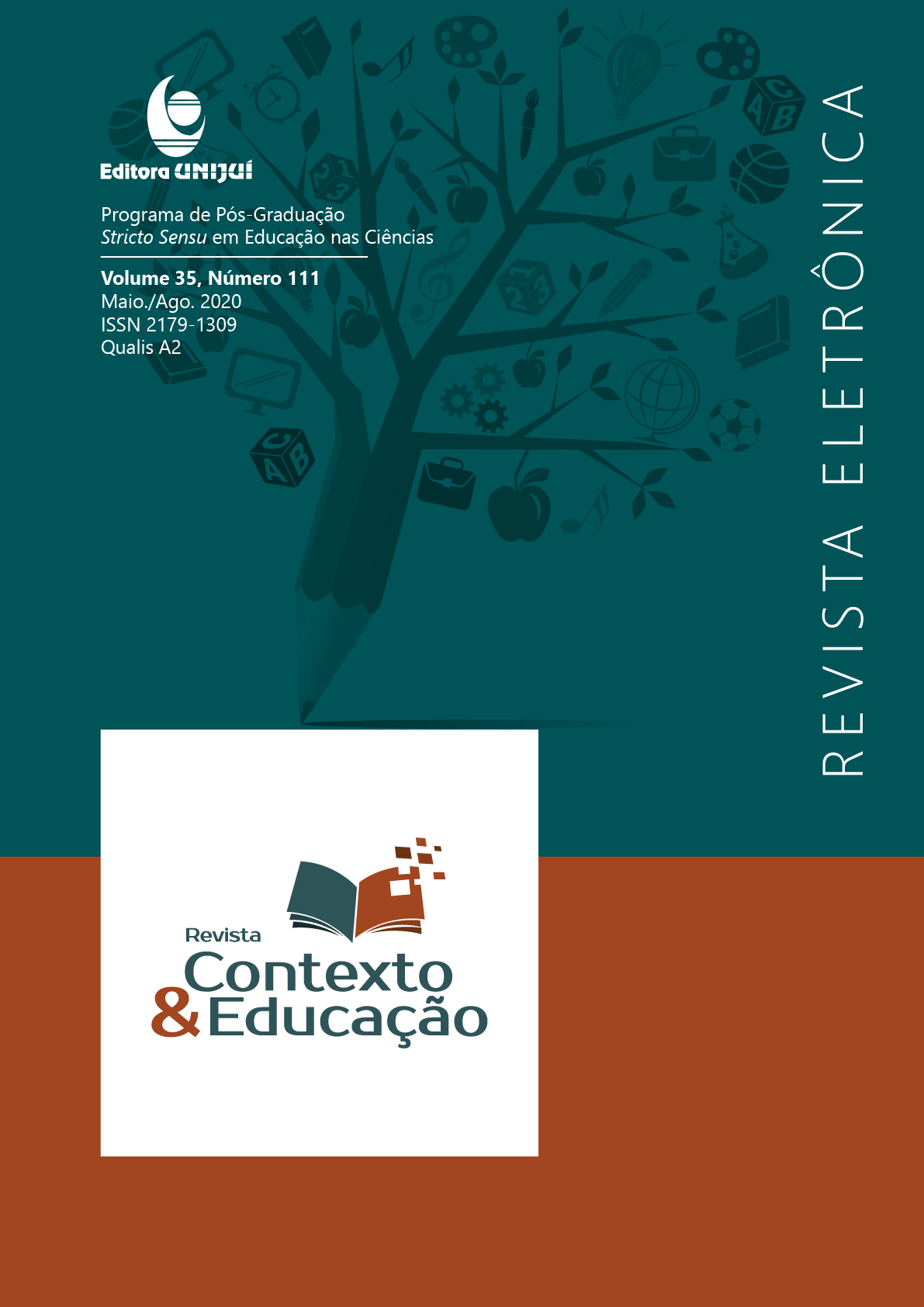HIBRIDIZAÇÃO CULTURAL E PAISAGENS SONORAS: INFLUÊNCIAS NA FORMAÇÃO DE JOVENS MÚSICOS
DOI:
https://doi.org/10.21527/2179-1309.2020.111.64-79Palavras-chave:
Hibridização; Paisagens Sonoras; Formação Musical, Juventude.Resumo
O objetivo desta investigação foi analisar o trabalho de formação de jovens músicos, desenvolvido pela Sociedade Musical 15 de Agosto na cidade de Aliança, Zona da Mata de Pernambuco, à luz da teoria da hibridização cultural de Canclini (2015) e dos estudos das paisagens sonoras de Schafer (2011). Desse modo, buscou-se compreender como as hibridizações se fazem presentes no processo de educação não formal de jovens, colaborando à construção de uma produção musical que faz parte de uma paisagem sonora local contemporânea sob as influências da cultura massiva. A investigação de caráter qualitativo, fundamentou-se na combinação de técnicas como a pesquisa bibliográfica, a análise documental, a observação direta com a utilização de diário de campo e a realização de entrevistas semiestruturadas com os sujeitos da pesquisa. Através da interpretação dos dados à luz das teorias escolhidas como indicadores, foram observados indícios de uma produção musical hibridizada, tendo os jovens como protagonistas do processo de formação musical. Além disso, os participantes da entidade identificaram através dos depoimentos, a presença de uma paisagem sonora híbrida, como parte de uma diversidade das culturas populares que comportam elementos da região e da cultura de massa transnacional.
Downloads
Publicado
Como Citar
Edição
Seção
Licença
Ao publicar na Revista Contexto & Educação, os autores concordam com os seguintes termos:
Os trabalhos seguem a licença Creative Commons Atribuição 4.0 Internacional (CC BY 4.0), que permite:
Compartilhar — copiar e redistribuir o material em qualquer meio ou formato;
Adaptar — remixar, transformar e criar a partir do material para qualquer fim, inclusive comercial.
Essas permissões são irrevogáveis, desde que respeitados os seguintes termos:
Atribuição — os autores devem ser devidamente creditados, com link para a licença e indicação de eventuais alterações realizadas.
Sem restrições adicionais — não podem ser aplicadas condições legais ou tecnológicas que restrinjam o uso permitido pela licença.
Avisos:
A licença não se aplica a elementos em domínio público ou cobertos por exceções legais.
A licença não garante todos os direitos necessários para usos específicos (ex.: direitos de imagem, privacidade ou morais).
A revista não se responsabiliza pelas opiniões expressas nos artigos, que são de exclusiva responsabilidade dos autores. O Editor, com o apoio do Comitê Editorial, reserva-se o direito de sugerir ou solicitar modificações quando necessário.
Somente serão aceitos artigos científicos originais, com resultados de pesquisas de interesse que não tenham sido publicados nem submetidos simultaneamente a outro periódico com o mesmo objetivo.
A menção a marcas comerciais ou produtos específicos destina-se apenas à identificação, sem qualquer vínculo promocional por parte dos autores ou da revista.
Contrato de Licença (para artigos publicados a partir de outubro/2025): Os autores mantém os direitos autorais sobre seu artigo, e concedem a Revista Contexto & Educação o direito de primeira publicação.


